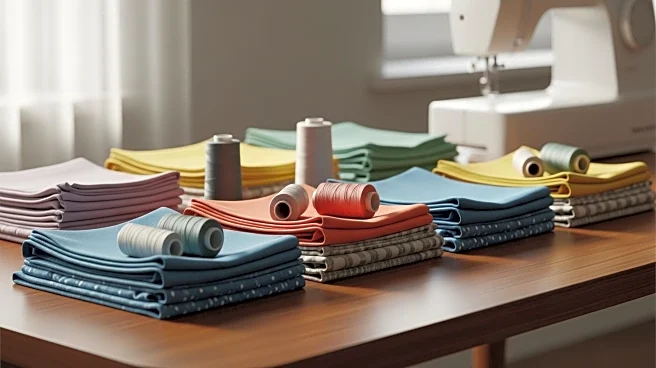What's Happening?
The European Parliament is set to implement a new law aimed at reducing textile waste and addressing the environmental impact of fast fashion. This legislation revises a 2008 directive and introduces the 'polluter pays' principle, holding producers financially responsible for the collection, sorting, and recycling of clothing at the end of its life. The law targets ultra-ephemeral fashion, characterized by high volume and low cost, and aims to reduce the average 15 kilograms of textile waste generated per European citizen annually. Additionally, the law sets binding targets for food waste reduction by 2030, requiring member states to cut food waste from distribution, catering, and households by 30 percent, and from food processing and manufacturing by 10 percent.
Why It's Important?
This legislation marks a significant step in the EU's efforts to create a more sustainable fashion industry and reduce environmental impact. By holding producers accountable for waste management, the law encourages more responsible production practices and could lead to a shift in consumer behavior towards more sustainable fashion choices. The food waste targets also highlight the EU's commitment to addressing environmental challenges across multiple sectors, potentially influencing global standards and practices.
What's Next?
Member states will need to develop specific programs to meet the waste reduction targets, which may include initiatives like selling 'ugly' fruits and vegetables, improving food labeling, and donating unsold food to charities. The law's implementation could prompt further investigations into fast fashion practices and lead to additional regulations targeting other aspects of the industry.
Beyond the Headlines
The law's focus on fast fashion and textile waste reflects broader concerns about the social and environmental excesses associated with low-cost garment production. The EU's approach may inspire similar legislative efforts in other regions, potentially leading to a global shift towards more sustainable fashion practices.

